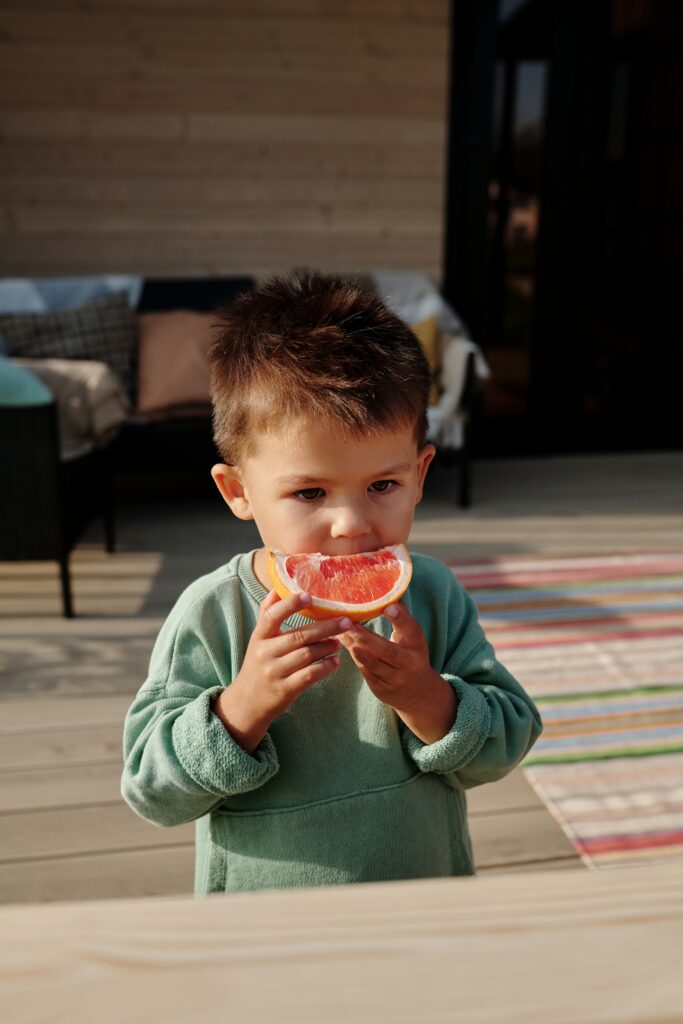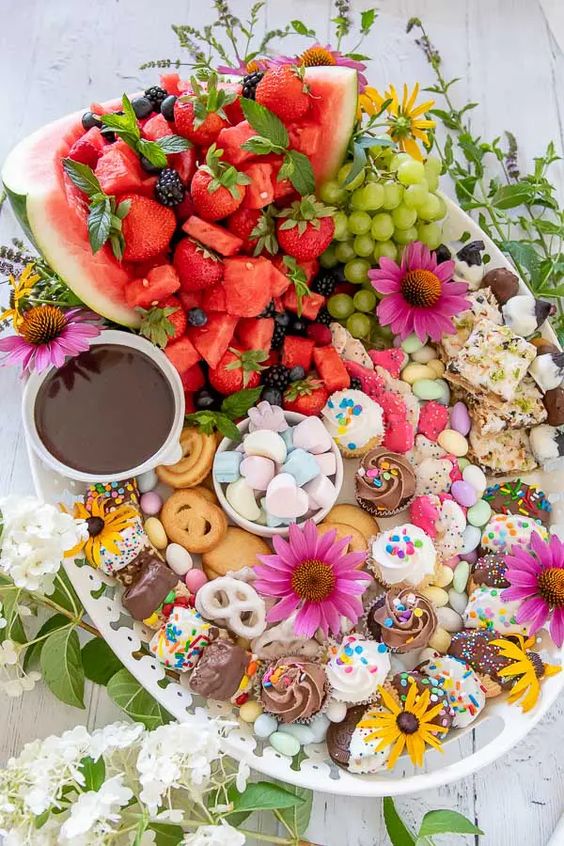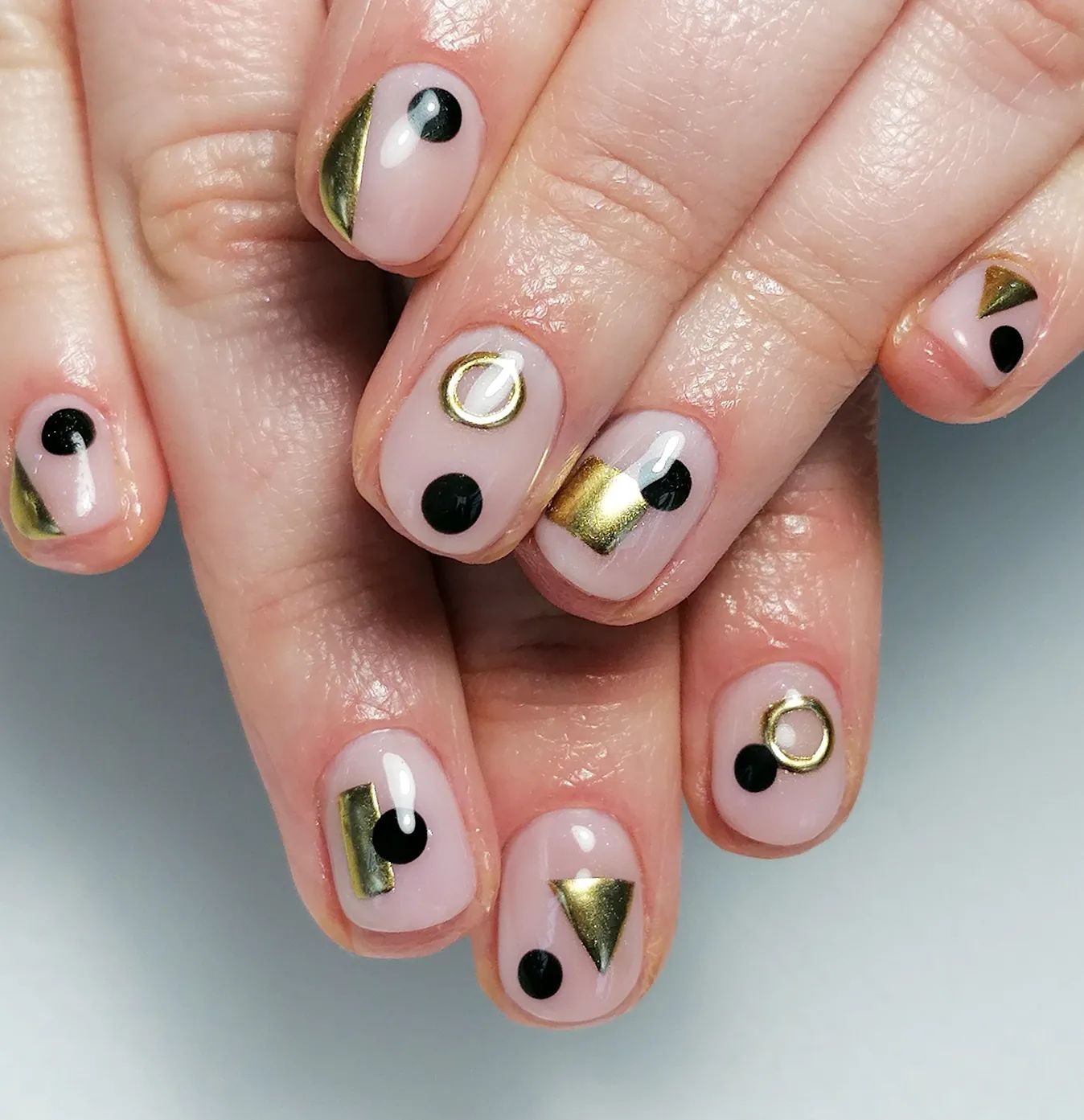A toddler needs around 1,000 to 1,400 calories daily to ensure they grow and develop correctly. With the right diet plan, parents can easily give their children that, along with all the essential nutrients they need.
Experts have repeatedly proven that proper nutrition helps children grow into strong adults with good health habits upon reaching adulthood. When toddlers receive the right balance of proteins, carbohydrates, healthy fats, iron, fiber, and calcium at an early age, they set themselves up for long-term physical and mental wellness success.
This article will discuss the six essentials of a toddler diet, so parents everywhere can easily feed their kids a balanced meal without making it a harrowing ordeal for everyone.
From picky eaters to adventurous diners, there’s something on this list that every child can enjoy while getting all the necessary nutrients. Read on to learn more.

Essential Nutrients For Your Toddler’s Diet
Your toddler needs to get the proper nutrients in their diet. Your daily goal should be providing them with a balanced mix of meals that hit their taste buds while still giving them what they need for proper growth.
Here’s a quick breakdown of each one.
1. Carbohydrates
Carbohydrates should make up roughly half of your little one’s diet. Opting for whole grains over refined white flour products is best; they provide more fiber, vitamins, and minerals necessary for growth and development.
Examples include oatmeal, brown rice, quinoa, or buckwheat pasta. Adding mashed sweet potato to dinner can also help get them closer to their daily target.
Look for labels that say ‘no added sugar’ or ‘unsweetened’ when choosing snacks like breakfast cereal or yogurt. If possible, opt for natural sources such as fresh fruit instead. This gives your child essential vitamins and teaches them healthy eating habits early in life.
2. Protein
Protein is an essential part of a toddler’s diet. Toddlers need about 13 grams daily, but requirements vary depending on age and activity level. Foods high in protein include eggs, dairy products, beans, nuts, fish, poultry, and lean meats.
Notably, eggs contain vitamins A and D, iron, zinc, and choline, which are all critical for healthy brain development. Meanwhile, dairy products like yogurt or cottage cheese provide calcium for strong bones and teeth.
Nuts like peanuts provide healthy fats while also supplying protein. Likewise, poultry and lean red meats have low fat and calories while offering plenty of protein. Fish provides omega-3 fatty acids, which play a role in brain health and proper growth during early childhood.
3. Fats
Fats are an essential component of a toddler’s diet and for a good reason. They provide energy, help the body absorb specific vitamins, build cell membranes, and more.
However, parents must ensure their toddlers get the correct type of fats in the right amounts.
It can be tempting to give in to cravings for fatty foods. However, not all fat sources are healthy for toddlers. Always avoid saturated and trans fats, as they can increase cholesterol levels and lead to health problems down the road.
Meanwhile, ensure your child gets enough omega-3 fatty acids from fish oils like salmon or walnuts and other ‘good’ fats from nuts, nut butter, seeds, avocados, olives, and coconut products.
4. Calcium
This mineral is essential for toddlers as it helps build strong bones and teeth. It also allows the body to use other nutrients like phosphorus and magnesium.
Dairy products such as milk, yogurt, and cheese are the best sources of calcium. It helps to give your little ones at least two servings a day.
Other good sources include dark green leafy vegetables (like spinach or kale), almonds, tofu, fortified bread and cereals, and orange juice.
Toddlers must get enough calcium in their diets. Otherwise, they risk having poor skeletal development, leading to many problems later in life. You may have to give babies under one year old vitamin D drops if they’re not drinking enough baby formula or breastmilk under a doctor’s recommendation.
5. Iron
Iron is an integral part of a toddler’s diet. This mineral helps to transport oxygen in the blood, fueling major bodily functions and helping with growth. It also supports healthy brain development.
A lack of iron can cause anemia, fatigue, and poor concentration, something no young child needs. To ensure your little one gets enough iron, try serving lean beef or pork once they’re used to chewing. You can also add spinach to meals, as this leafy green vegetable contains twice as much iron as other greens like broccoli, kale, and cabbage. Lastly, you can give them lentils for protein and iron.
6. Fiber
Fiber is also essential for their development. It promotes healthy digestion as well as the absorption of nutrients. It can also help reduce cholesterol levels and lower the risk of certain diseases later in life.
There are two types of fiber: insoluble and soluble. The former does not dissolve in water, preventing constipation by adding bulk to stool. In contrast, soluble fiber dissolves in water, helping slow digestion and stabilizing blood sugar levels.
You should include both these fibers within a balanced diet for toddlers, but they must consume only a little at a time since this can lead to stomach discomfort or diarrhea. Good sources include oatmeal, quinoa, barley, apples, berries, edamame bean, and chickpeas.
Give Them What They Need
Toddlers need to get the right balance of nutrients in their diets to grow properly. The good news is that a few simple steps can ensure your toddler gets all the vitamins and minerals they need. Each child is unique, so monitoring individual needs is vital when putting a diet together.
With smart planning, you can give your toddler all they need without a fuss. Talk to the experts for more information.






